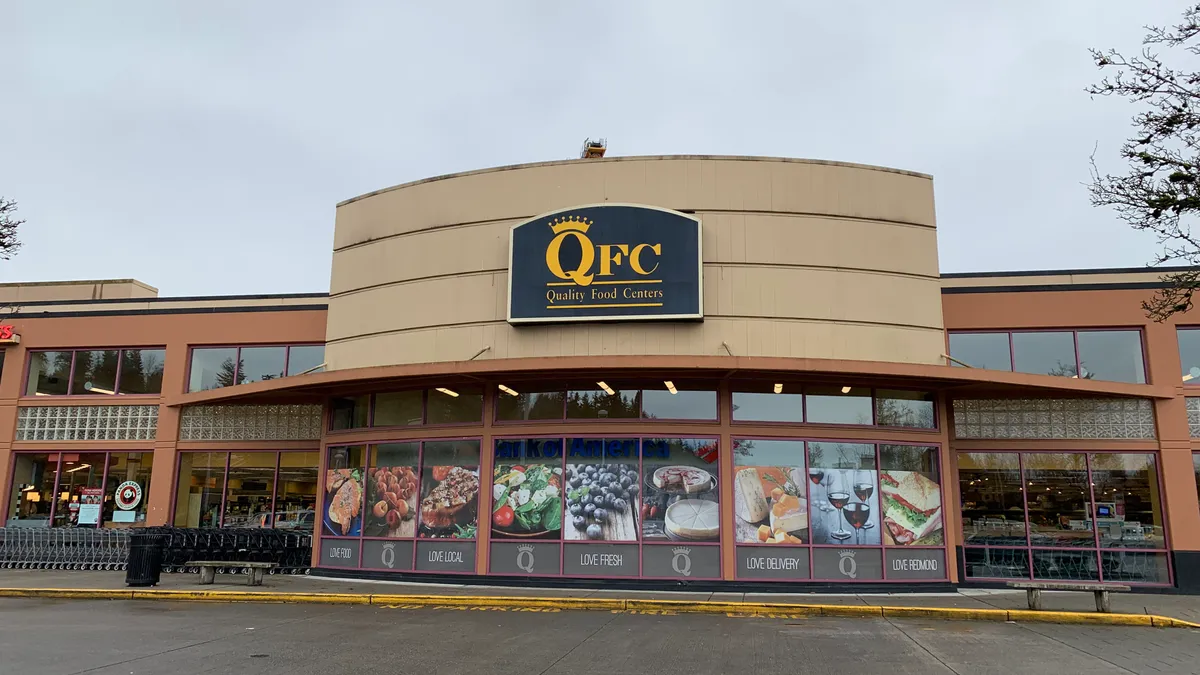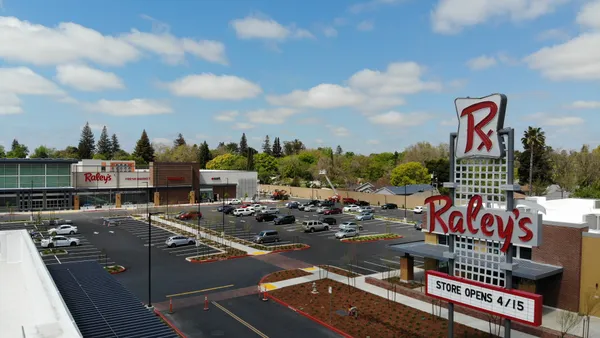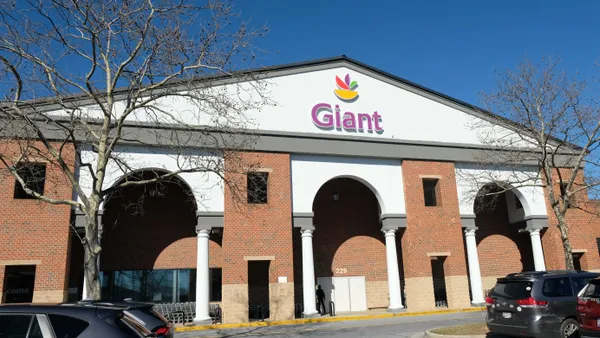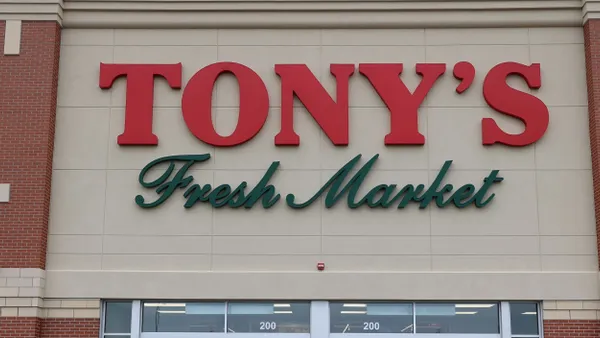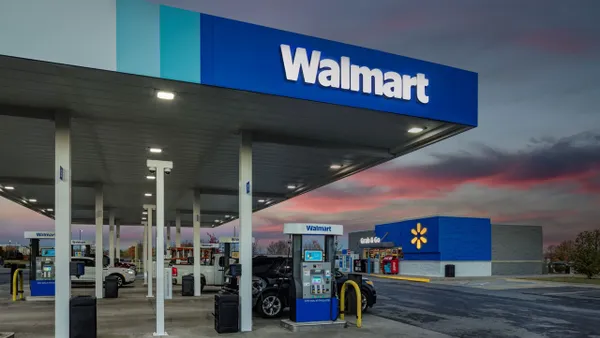Dive Brief:
- QFC, a Washington-state grocery store under the Kroger umbrella, will stop offering single-use plastic bags starting April 1, the company announced in a press release.
- The grocer will sell reusable bags, and through the month of April, QFC will donate $1 for each reusable bag sold in stores (up to $10,000) to The Nature Conservancy.
- QFC is the first Kroger subsidiary to phase out plastic bags. The effort is part of Kroger's Zero Hunger | Zero Waste initiative, which outlines Kroger's plans to eliminate single-use bags in all of its stores by 2025.
Dive Insight:
Americans use about 100 billion plastic bags a year, and less than 5% of those bags are currently returned for recycling. The rest of that plastic ends up in landfills or the ocean, and increased awareness of plastic pollution has prompted consumers to call for bans on plastic items including single-use straws, excessive packaging and bags.
Kroger’s Zero Hunger Zero Waste initiative not only calls for the elimination of single-use plastics but outlines aggressive goals to eliminate food waste as well. Eliminating single-use bags is just the first step in the company's long-term strategy, and Kroger's leadership in the space, especially as the nation's largest supermarket chain, sets a positive precedent for other retailers.
With locations in California, Oregon and Washington, QFC is a logical place to kick off the bag ban. Washington lawmakers are considering a statewide ban on plastic bags, and California became the first state to ban most stores from handing them out in 2016. Several cities in Oregon and Washington have implemented bans as well.
Bag bans are gaining momentum across the country. The entire state of Hawaii prohibits plastic bags, and the District of Columbia requires all businesses that sell food or alcohol to charge five cents for each plastic bag. In all, 349 U.S. cities, counties and states have banned or taxed plastic bag use.
Many shoppers are passionate about conservation — especially millennials, who are willing to pay more for products and services that align with their values — and they are speaking out. Trader Joe's recently pledged to curb packaging waste in its stores following a Change.org petition urging the company to reduce its use of plastics.
In January, Big Y announced plans to completely phase out plastic bags from its stores by 2020, attributing the change to its customer base wanting "more environmentally friendly alternatives."
Aldi has scrapped shrink-wrapped packaging on cucumbers, cabbage and cauliflower at some European stores. The German retailer is testing alternatives to disposable bags for fruits and vegetables and participates in the How2Recycle program, which helps shoppers understand what packaging can and can't be recycled.
Bag bans alone won't solve the issue of pollution, but growing consumer awareness of the problem may drive shoppers' decisions about where they choose to spend their money. A 2017 study on social responsibility found that 88% of consumers will be more loyal to companies that support social or environmental issues.


